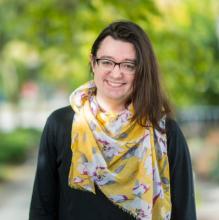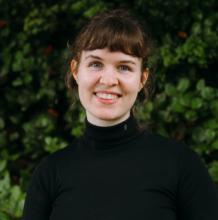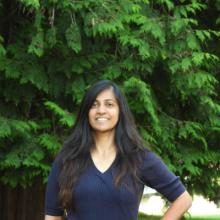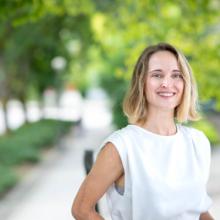In collaboration with the Heiltsuk Nation and the Heiltsuk Integrated Resource Department in Bella Bella, BC, Maggie's research investigates the implementation of a large-scale land use agreement between Coastal First Nations and the BC government, and the implications of the agreements for Indigenous well-being and governance.
Research Description
My research investigates the implications of the Reconciliation Protocol Agreement (RPA) - an unprecedented land use agreement signed between the BC government and Coastal First Nations in 2009 - for the Heiltsuk Nation of central coast BC. The RPA was negotiated after decades of dispute over logging on the coast, and is part of a larger set of agreements touted to improve the well-being of First Nations communities in the region. Little empirical work has been done to understand how the commitments within this agreement are taking shape and what implications are for creating lasting benefits for coastal First Nations communities. My research asks: what are the implications of the RPA for, 1) Heiltsuk achieving shared-decision making over land and resource decisions in their territory, 2) the governance structures developed between Heiltsuk and the Province to implement the commitments, and 3) creating mechanisms for increasing “human well-being”?
What does being a Public Scholar mean to you?
Being a Public Scholar means that as a scholar, it is my responsibility to engage in research, conversations and debates that have meaning to people in their daily lives. It means striving to make more lasting connections between the academy and its broader community that will benefit many different groups within our societies. It means listening, and then framing our questions and conducting our research in ways that promote these respectful and meaningful connections.
In what ways do you think the PhD experience can be re-imagined with the Public Scholars Initiative?
It's exciting to be part of an initiative that is attempting to reshape the relationship between academia and the public. The PhD experience can be re-imagined with the PSI by explicitly encouraging PhD students to be innovative and timely with their research questions, methods and dissertation. The PSI provides students more room to be creative with their PhD work, and in the process, creates the opportunity for connections that would not others be made between scholars, supervisors, institutions, organizations, etc. By placing so much emphasis on "the public", the PSI can push a PhD student/candidate out of their comfort zone in ways that are productive for the student, but also the broader community.
How do you envision connecting your PhD work with broader career possibilities?
I hope to use my PhD work and experience in Bella Bella to pursue a career that involves working with or for a First Nations government to help support their governance goals. I also hope to use my PhD work experiences to teach and facilitate learning about Indigenous issues in a university and/or collage classroom.
How does your research engage with the larger community and social partners?
My research questions were developed directly by the Heiltsuk Integrated Resource Management Department, which is the stewardship arm of the Heiltsuk Nation in Bella Bella, BC. My research explores the implementation of a land use agreement between the BC government and several First Nations whose territory is now called the central and north coast of British Columbia. This research aims to provide insights to the Heiltsuk Integrated Resource Management Department that will assist them with further implementation of the land use agreement and future negotiations. It also aims to share broader lessons for other Indigenous communities in Canada who are negotiating similar types of agreements with provincial, territorial and federal governments.
Why did you decide to pursue a graduate degree?
I was lucky enough to have several university professors who actively encouraged my passion for environmental and social issues. I have always wanted to keep learning about Canada's environment, resources and history and how all three are deeply connected to the Indigenous Peoples of Canada. My graduate studies experience has provided an opportunity to continue this learning in a meaningful way and meet inspiring people in the process.
Why did you choose to come to British Columbia and study at UBC?
UBC offers an excellent graduate program in Resources, Environment and Sustainability that is not only interdisciplinary but also focuses on research that contributes to solving real-world problems. UBC is also located in one of the most beautiful parts of the country, so that helped too.
As a scholar, it is my responsibility to engage in research, conversations and debates that have meaning to people in their daily lives".




